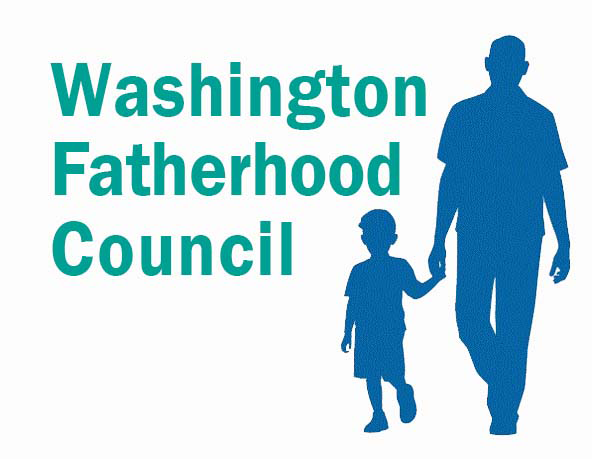
Thank you for attending!
The 4th-annual Washington Fatherhood Summit was held from May 24 to May 26, 2022, and featured presentations, forums and panels scheduled with leadership from Washington state agencies, experts in the education field, and advocates for fathers everywhere.
- Check out our speakers' bios here.
- Learn more about the history of the Summit, and watch a series of videos on the issues facing fathers, here.
- Check out recordings from the 2022 Summit, and the supplemental videos used in the Summit, here.
- Check out our 2022 Fatherhood Photo Contest winners.
Day-By-Day Information
Day 1: Tuesday, May 24 (Presentation Slides)
9 a.m.
Plenary 1: An Intentional & Inclusive Fatherhood Culture, Decreasing Bias and Stigma
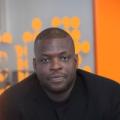
Dr. Alan-Michael Graves (Good Plus Foundation).
"We need to be intentional and unapologetic."
Currently leading a national initiative on policy change through training social workers on fatherhood engagement, Dr. Alan-Michael Graves has worked in the human services field for both public and private agencies for the past 18 years. Dr. Graves utilizes his knowledge and experience to strategically and positively impact the lives of children, families and communities.
This presentation will discuss methods of engaging families through an intentional cultural lens. With the current focus on diversity, equity and inclusion, it provides us an opportunity to focus our attention on the socio-ecological risks facing families of color.
The workshop seeks to provide some direct and indirect linkages between social experiences and the disparities of minority families and methods that can be used to better engage and ultimately help them improve their outcomes. Here's the presentation slides.
10:45 a.m.
Session 1: Most Dads Are Not Violent. What If They Are?
This session will identify approaches that fatherhood programs can take to help prevent and address intimate partner violence among fathers and include practical strategies and tips to help fatherhood programs improve their efforts and strengthen connections with partner organizations.
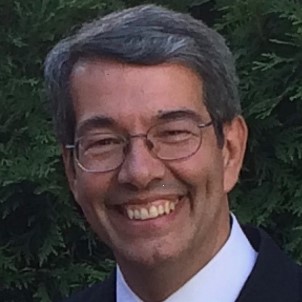 Dr. Juan Carlos Arean (Program Director, Children & Youth Program at Futures Without Violence, Boston).
Dr. Juan Carlos Arean (Program Director, Children & Youth Program at Futures Without Violence, Boston).
"Love heals violence, not everyone who is angry is abusive."
Juan Carlos Areán, Ph.D., is an internationally recognized activist, public speaker, trainer and facilitator, and published author. Since 1991, he has worked to engage men across different cultures to become better fathers, intimate partners, and allies to end domestic violence and achieve gender equity. He presently works as a Program Director at Futures Without Violence. Previously, he served as Director of the National Latin@ Network at Casa de Esperanza and as a Sexual Assault Prevention Specialist at Harvard University.
Dr. Areán is a founding member of the United Nations Network of Men Leaders to combat violence against women created by former Secretary-General Ban Ki-moon. He is an active trainer and facilitator, who has led hundreds of workshops and presentations throughout the United States, the Americas, and the Caribbean, as well as in Europe, Asia, the US Congress, and the United Nations in New York and Geneva. His presentation will include references to this Fathers Workbook, the PAIVED study, the Somthing My Father Would Do video, and these Fathering After Violence resources.
11:50 a.m.
Session 2: A Framework for Improving Individual and System Supports for Reentering Dads
This panel will explore the barriers, struggles, and opportunities facing incarcerated fathers transitioning back into the lives of their children and families. Hear from fathers with lived experience and the professionals who walk beside them while maneuvering the Washington state corrections and community systems. Check out the session agenda here and this incarceration fact sheet.

Darin Goff, Program Manager, Department of Corrections
Darin is the Program Manager for the Department of Corrections’ Strength in Families program. He has worked with the Washington State Department of Corrections for 34 years. In that time, he has supervised a wide range of departments and programs and worked with male and female incarcerated individuals of all custody levels. He has supervised a Minimum Custody Living Unit focused on Reentry, facilitated Family Advisory Committees and developed several Reentry and family Re-unification programs. He has been with the Strength in Families since April 2016 and was promoted to Program Manager in October 2018. SIF was initially supported by the Responsible Fatherhood Opportunities for Reentry and Mobility grant from the federal office of the Administration for Children and Families but is now funded through the Department of Corrections. Prior to his current position, Darin worked at the Washington Correction Center for Women for 13 years and the Monroe Correctional Complex for 15 years. The SIF team won the Department of Correction’s 2020 Team of the Year award. Additionally, Darin has worked as a professional climbing guide, leading expeditions to some of the world’s biggest mountains for Rainier Mountaineering Inc.
 Jim Chambers
Jim Chambers
"Our second prison is the one that we enter when we are released from incarceration."
Jim is a father who parented behind bars for 21 years and is now in the community, volunteering and supporting re-entering fathers’ successes.
 Bruce Wood, MSW (Correctional Specialist 3, DOC; Participating member of the Children of Incarcerated Parents Task Force and the Children's Justice Task Force)
Bruce Wood, MSW (Correctional Specialist 3, DOC; Participating member of the Children of Incarcerated Parents Task Force and the Children's Justice Task Force)
Bruce led DCYF's first fatherhood initiative to engage fathers in safe healthy relationship with their children. He also led the implementation of a mentoring project by foster parents, for biological parent’s involved in dependencies. Implemented Family Group Conferencing, in partnership with the University of Washington increasing the evidence base around child safety and reduced permanency timelines. He also helped initiate the state’s first assessment, case management and case plan model called Solution Based Casework and became a national consultant for the model with the author, Dana Christensen PhD. He joined DOC to implement an evidenced based parent management skills training program called Parenting Inside Out, (PIO) in all twelve state prison facilities. Currently involved with numerous projects to better connect incarcerated parents with their children in healthy restorative ways to reducing recidivism, and intergeneration incarceration. He is a participating member of the Children of Incarcerated Parents Task Force and the state-wide Children’s Justice Task Force.
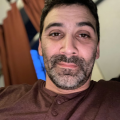 Rudy Romo
Rudy Romo
Rodolfo (Rudy) Romo is a formerly incarcerated father from the Washington state corrections system. In October 2021 he was granted early release from prison on the Community Parenting Alternative program. He is the proud father of three sons and two daughters. Through two incarcerations Rudy has remained a strong father figure in his children and wife’s lives. He is open and honest about his successes, struggles, and regrets with being an incarcerated father. During his three years of incarceration he and the family worked hard to maintain a loving and supportive relationship. It has been no easy task. But, due to the love, strength, and resilience of Rudy and his entire family they are making it through!
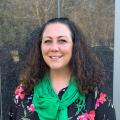 Tera McElravy (Corrections Specalist, DOC's Strength in Families program)
Tera McElravy (Corrections Specalist, DOC's Strength in Families program)
Tera provides education and guidance to releasing incarcerated fathers in an effort to enhance a positive and healthy reconnection with their children and families. The majority of her 22 years with the Department has been spent managing and creating enrichment programs for incarcerated individuals and their families. She has observed firsthand the support opportunities and unique struggles of the incarcerated when trying to return back home.
Day 2: Wednesday, May 25 (Presentation Slides)
8:30 a.m.
Welcome Message
- Anne Stone (Director, Washington Fatherhood Council)
8:35 a.m.
What Did We Learn in Day 1 That We Want to Carry Forward With Us Today?
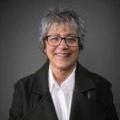 Cheryl Strange (Secretary, Department of Corrections)
Cheryl Strange (Secretary, Department of Corrections)
Secretary Strange will reflect on Fatherhood’s essential role in strengthening families with justice-involved dads and fathers at re-entry.
9 a.m.
Plenary 2: Fathers Tell Their Story
Facilitated by Jeremiah Donner (Children's Home Society of Washington)
Panelists include Tui Shelton, Dean Maraman, Steven Thibert and Christian Paddock.
 Christian Paddock
Christian Paddock
"Our children are not part of our lives. We are part of their lives."
Christian Paddock is a 25-year resident of Seattle and the father of two beautiful daughters. He writes: "We lost our six-year-old last year. Hazel had a tremendously rare genetic disorder that upended all of our expectations in raising our first child. She helped me be a better advocate, a more patient father and just a better human being through inclusion and understanding."
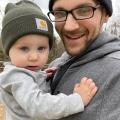
Steven Thibert
"I had to work hard to get a parenting plan that phased in to 50/50 custody, but I got it."
Steven resides in Pierce County. He is a small business owner with a health and fitness coaching company. He has one child: a 17 month old son, Theodore. Steven has a unique story in overcoming adversity with the odds stacked against him to gain what is considered a very fair custody split here in Washington. Through this, he has developed a passion for volunteering to help fathers in many ways including being a part of the Fatherhood Council as well as involvement in a national study for Early Relational Health, representing the fathers of our nation.
 Tui Shelton
Tui Shelton
"If I had not become a dad, I would probably be dead by now."
Tui Shelton is a single father of seven kids with four different mothers. He was born in Samoa and raised partially in Sacramento and partially in Washington. He served in the military, where he was shot an inch from his heart, and returned from Iraq to Washington. He's helped create fatherhood groups for several different organizations and has extensive experience working with Washington's family law system. He's proud to have 50/50 parenting plans on six of his children.
10:30 a.m.
Community Café Table Group Discussions
11 a.m.
Session 3: Child Sexual Abuse and Its Impact on Adult Male Survivors: The Silent Epidemic
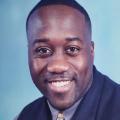 Hassan Daniel (The Father Factory Inc.)
Hassan Daniel (The Father Factory Inc.)
In his discussion, Hassan talks with the Washington Fatherhood Council and to discuss the silent epidemic of child sexual abuse. Learn about this hidden threat to public health, its impact on boys and men, the chilling statistics, and ways we can give voice to the voiceless. One in six boys and men are known to have experienced sexual assault, yet these numbers reflect under-reporting due to stigma, blame, and shame. Discover how the child sexual abuse crisis can be prevented, fathers who have experienced childhood sexual abuse can become the fathers they want to be.
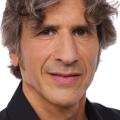 Joshua D. Sparrow, M.D., DFAACAP (Executive Director, Brazelton Touchpoints Center; Associate Professor of Psychiatry, Harvard Medical School)
Joshua D. Sparrow, M.D., DFAACAP (Executive Director, Brazelton Touchpoints Center; Associate Professor of Psychiatry, Harvard Medical School)
Joshua Sparrow, M.D., DFAACAP, is executive director of the Brazelton Touchpoints Center (BTC) in the Division of Development of Medicine at Boston Children’s Hospital, where he also holds an appointment in the Department of Psychiatry. Dr. Sparrow’s care in the 1990s for children hospitalized for severe psychiatric disturbances, often associated with physical and sexual abuse, and for developmental delays aggravated by social and economic deprivation, prompted his interest in the social determinants of health, and community-based prevention and health promotion. He is principal investigator on numerous foundation grants and has lectured nationally and internationally, written numerous scholarly papers, as well as books and articles for the general public. He has advised government agencies, nonprofits, and philanthropies, is a board member of Parents as Teacher and serves on the advisory boards of the Association for State and Tribal Home Visiting Initiative and Rapid Response Virtual Home Visiting. At the Brazelton Touchpoints Center, his work focuses on cultural adaptations of family support programs, organizational professional development, and aligning systems of care with community strengths and priorities.
12:05 p.m.
Session 4: Joy and Healing Through Male Engagement
Why is it that when we think about fathers and father-like figures in our world, we don’t see them as caring and loving souls? Why is it that we call it “adorable” when we see male involvement in preschools, maternity wards, dance recitals, and other places normalized for one gender over another? Why are we “surprised” when we see Black and Brown male involvement in the lives of the children in our world?
In this session, three male nurturers of colors, who work with our youngest citizens, explore the erasure of male presence in caregiving settings. Taking a unique look at what joy and healing looks like in order to dismantle the oppressive structures, perceptions, and ideologies that robs us of our desire to love and support our youngest community members, we’ll discovery ways we can reconfigure our institutions, relationships, roles, and norms to support and expect male involvement. Join us as we spend a hour dialoguing around the false narratives that influence males participation in the lives of young children and work to reclaim our roles as loving, caring, and compassionate fathers, father-like figures, community members, educators, and males.
Panelists include:
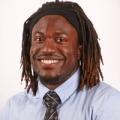 Michael Browne (Facilitator; Senior Manager of Community Engagement, Cultivate Learning Preschool male teacher)
Michael Browne (Facilitator; Senior Manager of Community Engagement, Cultivate Learning Preschool male teacher)
Mike Browne (he/him), is an east coast transplant from New York with a MBA degree in International Business and Marketing. He currently serves as the Senior Director for Community Engagement at Cultivate Learning at the University of Washington where he organizes culturally responsive professional development workshops and opportunities for leaders working with young children. Prior to that he served as Community Engagement Manager at Hilltop Children’s Center and Educator Institute. After exchanging his tap shoes for football shoes, he played Division 1 Football for the University at Albany, where he played cornerback and safety. Following 3 years of working and living in London and Spain, he found his way to Seattle where he has been building bridges between communities to help create a city where the voices of the marginalized are heard, inclusive policies are created, and citizens unite to form a vibrant urban center. While over the years, his job titles may have changed, and the cities he lives in may look different, one thing has remained the same – his ability to create and implement purposeful desired community change, form effective relationships and sustain community vitality.
 Nick Torrones (Day Breaks Preschool, “Our Strong Fathers” tribal men’s support group)
Nick Torrones (Day Breaks Preschool, “Our Strong Fathers” tribal men’s support group)
Nick Terrones (he/him) is Mexican-Native American, a descendant of the Chumash people whose traditional lands span a large part of southern California. Nick has been in the Early Childhood field for over 14 years, with 12 of those spent working directly with toddlers and families. Currently he is the program director at Daybreak Star Preschool in Seattle, an early learning program that implements an indigenous curriculum. Outside of the school setting, Nick is an active member in the World Forum Foundation on Early Care and Education’s Men in ECE leadership team. He seeks to recruit and retain men of color to the wonderful world of early learning, as well as provide opportunities for people to explore and unlearn their gender, racial, and cultural biases through pragmatic presentation and publishing. Check out his book, A Can of Worms: Fearless Conversations with Toddlers.
 Amir Gilmore (WSU Associate Dean of Equity and Inclusion for Student Success and Retention, Assistant Professor Cultural Studies and Social Thought in Education)
Amir Gilmore (WSU Associate Dean of Equity and Inclusion for Student Success and Retention, Assistant Professor Cultural Studies and Social Thought in Education)
Amir’s interdisciplinary background in Cultural Studies, Africana Studies, and Education allows him to traverse the boundaries across the social sciences, the arts, and the humanities. His interests in Black Critical Theory and Black Masculinities ground his scholarship on Black Boy Joy, and he is well versed in areas such as Critical Race Theory, feminisms, and social theory. His vision and scholarship make critical contributions to the fields of Black Studies and Education, as well as connects to larger discussions of Afrofuturism and Black Aesthetics. He’s a New York raised, Black, male educator with a PS5.
Day 3: Thursday, May 26 (Presentation Slides)
9 a.m.
Plenary: Fatherhood Program Showcase
Moderated by Dieter Jacobs (DSHS, Fatherhood Council), this session showcases several programs that show the variety and depth of work happening in the state. Programs include:
- Washington State Division of Child Support (DSHS): Andrew Chin, DCS Communications and Equity Chief
- Dads Move: Nelson Rascon, Executive Director
- Washington State Fathers Network: Louis Mendoza
- Spokane Fatherhood Initiative: Ron Hauenstein, Executive Director
- Youth and Family Link: Corie Dow, Executive Director
- South King County Healthcare Services: Rachael Gathoni, CEO
10:15 a.m.
Work Session: Washington Father Friendly Principles
We want to create a state where fathers become the parents their children and families need. Service providers, organizations, and policymakers will need to:
- Commit to equity, fairness and justice for all fathers.
- Recognize and promote co-parenting for better outcomes of children and families.
- Factor in the essential role of fathers in the growth and development of children.
- Involve fathers with lived experience in the design of programs and policies.
- Recruit and retain staff that better reflect the communities they serve
- Train service providers on effective fatherhood inclusion communication and practices
- Increase fatherhood specific resources.
- Increase Data Collection and analysis to show the importance of Fathers
- Recognize and address individual and system biases that marginalize fathers.
